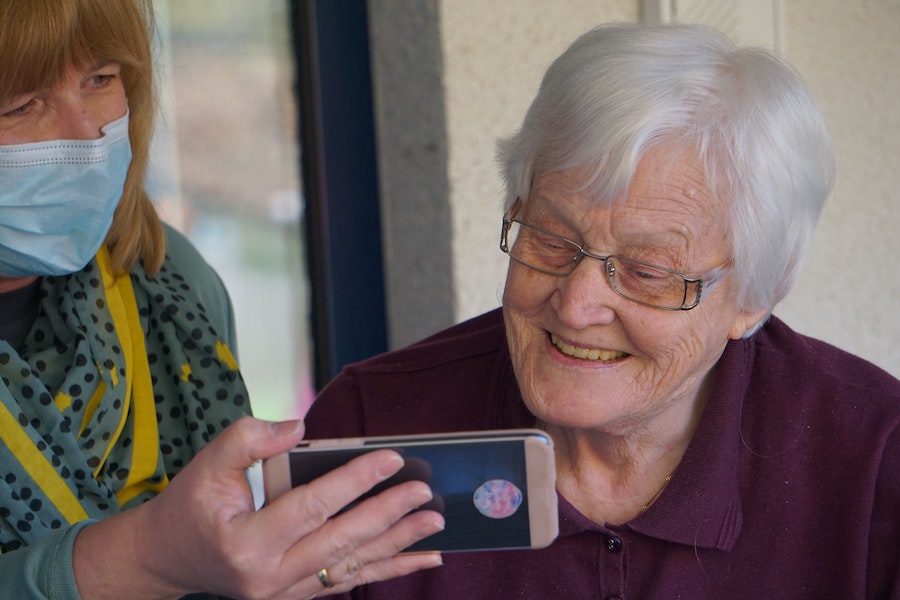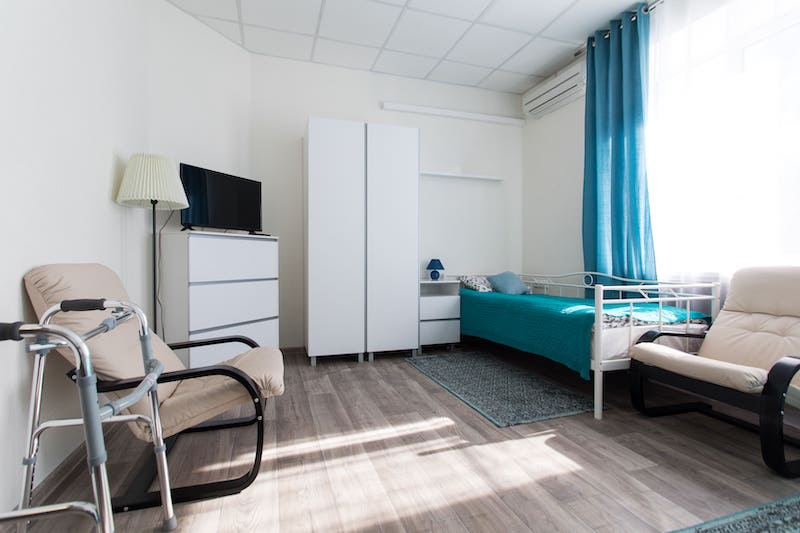This article is part of a series on elderly care. The series provides important information about caregiving practices.
Caring for the elderly can be both challenging and draining, especially when the caregiver has their own family to think about. But, it is also exceptionally meaningful work.
According to The Pew Research Center, 14% of middle-aged adults (between 40 and 50 years old) care for elderly parents. As much as 70% of young adults (between 20 and 40) also say they intend to provide care for their aging parents.
Whether familiar with caregiving or trying to decide between informal care and full-time nursing, don’t fret. Here’s nine effective elderly care tips you need to know.
9 Elderly Care Tips
Anyone who intends to provide the best elderly care must be prepared for the intense physical and emotional stress inherent in the task. They should also be adept at managing a healthy lifestyle and shouldering the associated financial burden. Sleep deprivation will be inevitable, which can be taxing on mental health.
Here are nine elderly care tips to make elderly caregiving more meaningful and less stressful.
1. Learn about the elderly person’s condition
It makes sense to learn as much as possible about an elderly person’s condition before embarking on a mission to care for them. A diabetic elder parent has significantly different needs from one with dementia or cardiovascular disease, for instance, so how care is carried out will differ.
The nursing care of elderly patients requires a degree of knowledge of geriatric conditions, including trends and updates in treatments and care management.
You don’t have to be a nurse or a professional health caregiver to do this. Families can learn from healthcare professionals. Attending all doctors appointments alongside the person being cared for is especially important for those suffering from memory loss, because the information they provide won’t always be accurate.
Don’t be afraid to ask questions.
2. Make elderly care person-centered
Encourage the senior family member to decide about their own care if they have the capacity to do so. People fear diminished personal control as they age. Making decisions for them only strengthens this fear and potentially creates a sense of mistrust.
Caring for the aging demands respect for the senior’s abilities and personhood.

Help them decide on their plan of care, including the treatments they would like to receive when they want to get them, and from whom. Consider their beliefs and help them make realistic expectations about their care.
With progressively debilitating conditions like dementia, acquiring guardianship or power of attorney over their finances and property will likely become necessary.
3. Focus on “well-being”
Family members must recognize that caring for elderly parents does not just amount to daily phone calls or weekly visitations. People with dementia, disabilities, or terminal illnesses need constant surveillance to assess how they are doing, living independently.
A surveillance camera can be an invaluable tool for families that are juggling a lot on their plate. Find out how surveillance can better enable full-time care for busy people.
It’s important not to confuse “well-being” for “wellness.” The latter relates more to a person’s positive health state, while “well-being” equates to happiness and general health (a complete state of physical, mental, emotional, spiritual, and social “wellness”). Neither should fall by the wayside.
Be flexible, creative, compassionate, patient, and caring whenever interacting with the elderly.
4. Be realistic
A clear picture of the various elderly care requirements will help families assess whether they can manage everything themselves or require outside help. For example, elders with physical disabilities might need walkers or wheelchairs to move about that the caregiver will have to purchase for them.
Even if complicated medical care isn’t required, there will be instances where the primary caregiver has an important activity to attend to. Be realistic about the care one is ready and committed to provide and delegate other tasks to other family members or a part-time professional service provider.

While most families can commit to checking on elder parents every week, doing it every day might be far-fetched for someone working full-time.
A combination of two-way surveillance and proper task delegation to other family members of part-time carers can help make the task more manageable, as well as helping the caregiver resist the urge to shame themselves for not being able to devote themselves as much as they want.
AlfredCamera is an app that turns your old phones into security cameras for free. Download it today to see how it can be part of your care plan!
5. Keep them active and engaged
The US Centers for Disease Control and Prevention says increased physical activity delays or prevents many age-related health problems.
Some physical activity is still better than being bedridden or staying in one place the whole day, even if that’s just a short walk around the block. Not to mention, a walk does wonders for mental health.
Contact community organizations to assist in moving elders to and from meetings and events. Religious groups and other communities can usually facilitate the senior person’s attendance at gatherings with bus services.

Try growing flowering plants and fruit-bearing shrubs in the backyard. It’s an excellent form of exercise and a good source of Vitamin D from morning sun exposure. Jogging or brisk walking with other seniors is also helpful.
6. Ensure a safe living environment
Ensuring optimum health for seniors requires safety-centered approaches.
Automobile accidents, accidental poisoning, burns, and falls are some safety issues many older adults face because of diminished muscle strength, poor balance and control, slow cognitive processes, and other health problems.
Families taking care of elderly parents at home must consider installing grab bars in the bathtub, shower stall, and next to the toilet. Railings are essential on stairways, hallways, and pathways, while non-slip, non-skid flooring should help prevent accidental falls.

Family members must also plan for medical equipment and devices, including reclining beds, wheelchairs, and portable oxygen tanks.
Carrying out structural changes may demand a lot of time and attention, but it’s important not to overlook more simple hazards, like moldy food and slippery floors.
Sweep the cupboards and fridge every week to check that food, and get into the habit of cleaning the living space regularly.
7. Facilitate professional nursing in-house consultations
One of the best health tips for seniors being cared for by a family member is coordinating with nursing professionals for regular in-house visitations and consultations.
Their clinical assessment skills can provide families with a wealth of information necessary for the long-term care of aging parents.

Professional nursing in-home services can take the burdens off one’s shoulders even when it is on a part-time basis. Some can also provide telehealth services, allowing elders and their families to access timely healthcare information.
Check with the American Association of Retired Persons for the best home caregiving options and other geriatric (senior health) care resources for loved ones.
8. Assist with daily living activities
People with normal function won’t have issues dressing, grooming, and eating, However, the elderly might find these tasks too difficult to initiate or accomplish. Family members must prepare to assist them in these activities.
Caregivers don’t only assist elders with their ADLs (Activities of Daily Living). They must also help manage finances, facilitate transportation, prepare and cook food, do the laundry, clean the house, and other instrumental activities of daily living. These tasks are crucial when caring for an elder parent.

When carrying out these tasks, do so with patience and calmness. Don’t lose your cool. If feelings of frustration arise, take a moment to breathe before returning full concentration on the current situation. It will be time-consuming, so don’t get irritated if it takes a long time to dress or wash the person being cared for.
9. Consider other care options
No two seniors have similar care requirements, just as each person is unique. Families should consider enlisting professional help to lighten the burden of caring for elderly parents.
- Palliative care: Seniors with a serious illness may require in-home palliative care from medical and nursing practitioners to manage various disease-related symptoms and complications.
- Assisted living communities: Assisted living communities are perfect for seniors requiring 24/7 care or who cannot live independently. Loneliness is an often overlooked issue that living with other people in a community can address.
- Independent living communities: Also ideal for combating loneliness, ILCs are suitable for seniors who are able to take care of themselves but long for a sense of belonging and kinship with other people. ILCs organize events and group dinners for citizens, but also might provide services like cleaning.
- Nursing or care homes: These healthcare facilities provide specialized care provided by healthcare professionals for seniors with dementia, physical disabilities, sensory impairment, mental health conditions, and other health problems.
- Day care: Known as respite or temporary care, the elderly person stays at a facility for a short time. It’s similar to a children’s day care center. This can be a really helpful way to facilitate informal caregiving when the caregiver has a full-time job.
Check out our article on types of elderly care to learn more about what’s available on what works best for different situations.
The Importance of Elderly Care
People have varying perceptions about the importance of elderly care. For most, it’s a way of giving back to the people who raised them. Most seniors desire financial independence, dignity, good health, and a peaceful death.
And taking care of elderly parents at home may allow for independence and integrity to be maintained more easily, though much of the stigma around nursing homes is simply that: stigma. The biggest difference is the cost, but caring for the aging family members might also show young children the value of life, and the privilege of providing care to loved ones.
FAQ
What do elderly need the most?
According to The National Conference of State Legislatures and the American Association of Retired Persons, aging people want to live their golden years in their respective homes and cherish friendships and other relationships in the community. Moreover, older people want to avoid institutionalization and dependence on other people.
What are the basic needs of the elderly?
The elderly have five basic needs: financial security, personal safety and security, mental health, accessible health care, and self-actualization. All five of these need to be considered when caregiving. However, it’s worth noting that some folks might differ in their specific needs.
How do you care for elderly parents at home?
Caring for them at home requires patience and understanding of the basic needs. Enlisting other people’s assistance can help. Families can ensure children and grandkids appreciate what the elderly member is going through. Keeping them engaged and physically active cares for their physical, mental, emotional, and social well-being. Organizing the home into a safer and more accessible place can improve comfort, convenience, and safety.
How can I be a better caregiver for the elderly?
Taking care of oneself is the best way to become a better caregiver for the elderly. Senior caregiving demands energy, focus, knowledge, and determination. Confidence and strength of mind is also necessary for caregiving.
Being compassionate and offering encouraging words can go a long way to make the person being cared for feel at peace. Act decisively if you must, because hints of hesitation can translate to a lack of confidence.
How do you help your parents at home?
Empathize with parents at home, especially if they have a deteriorating physical or mental state. Call on them regularly and enlist other family members’ involvement. Seek out and address potential problems before they get out of hand. Encourage the elderly to be active and be ready to be their advocate. Creating a memory book of photos for them also helps.
How do you care for a parent with dementia at home?
One of the best ways people can care for a parent with dementia at home is to create a list of daily needs for elderly care. This technique helps establish a routine that caregivers and recipients can get to grips with. Assisting the parent in making appointments, to-do lists, and other activities on a calendar or notebook also helps.
Encourage the person to perform activities themselves (i.e., feeding, bathing, grooming, and dressing) while offering assistance. Consistency is essential when caring for people with dementia. Hence, always perform activities of daily living at precisely the same times, daily, and with the same materials the person is familiar with.
Conclusion
Elderly care tips don’t end with these nine pieces of advice. However, these guidelines should provide a clear picture of how to take care of elderly at home, paving the way for more compassionate and caring practices. Just remember, treat aging parents today how you would want your children to treat you in the future.
Elderly Care Series:
A Guide To Elderly Care For Dementia Patients
Choosing The Best Indoor Camera For Elderly Care
20 Essential Elderly Care Supplies for New Caregivers
The True Cost of Elderly Care at Home
Getting to Grips with Levels of Elderly Care
What Are the Types of Elderly Care? The 6 Care Services You Need to Know
